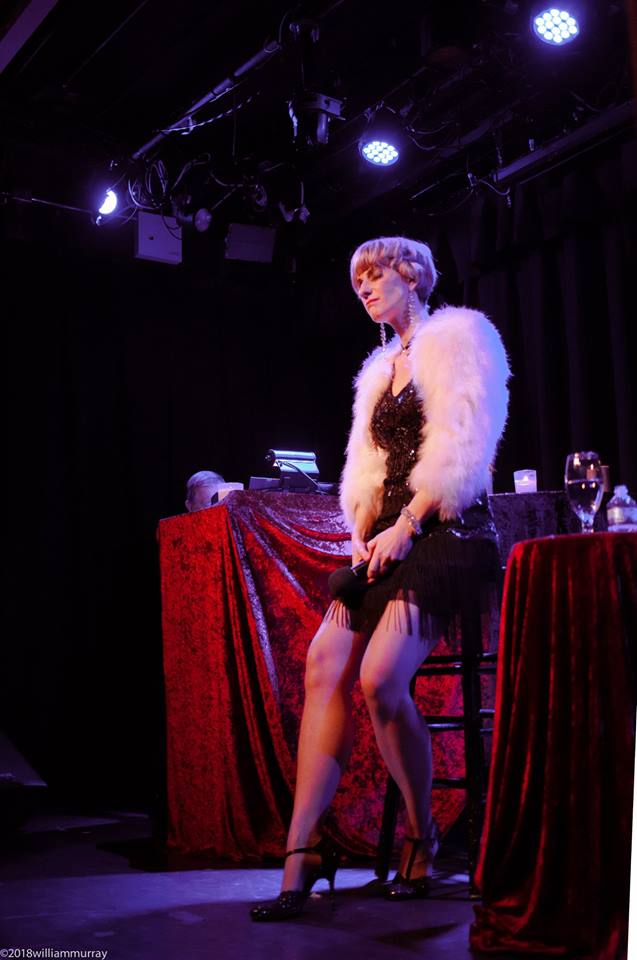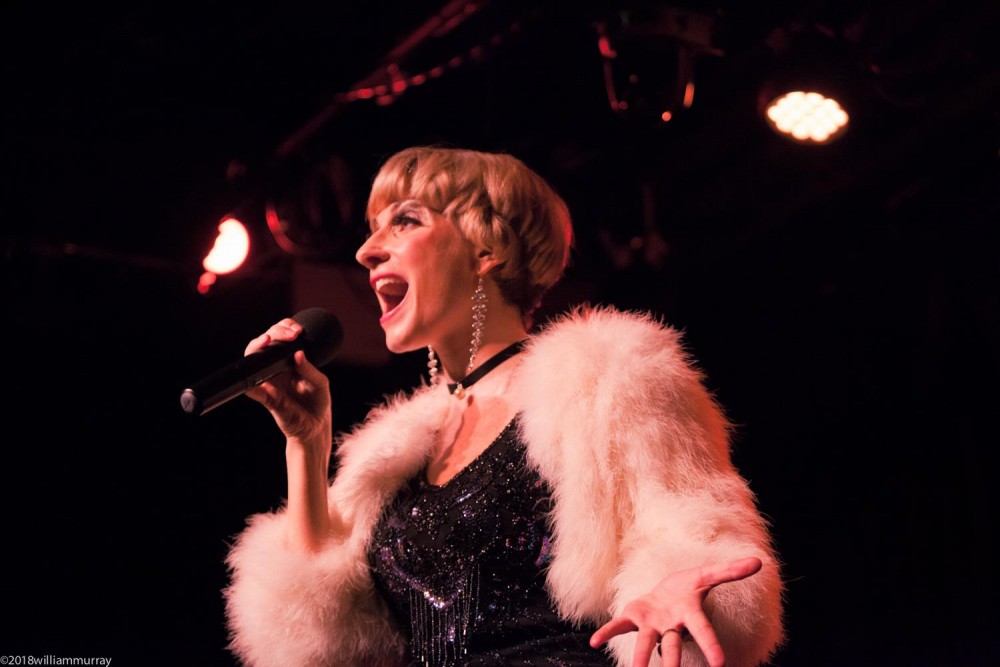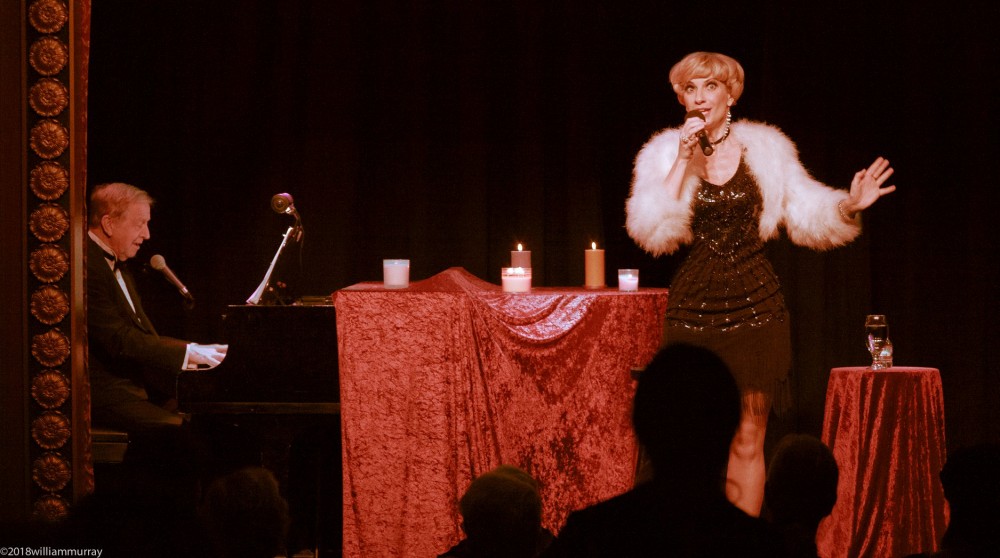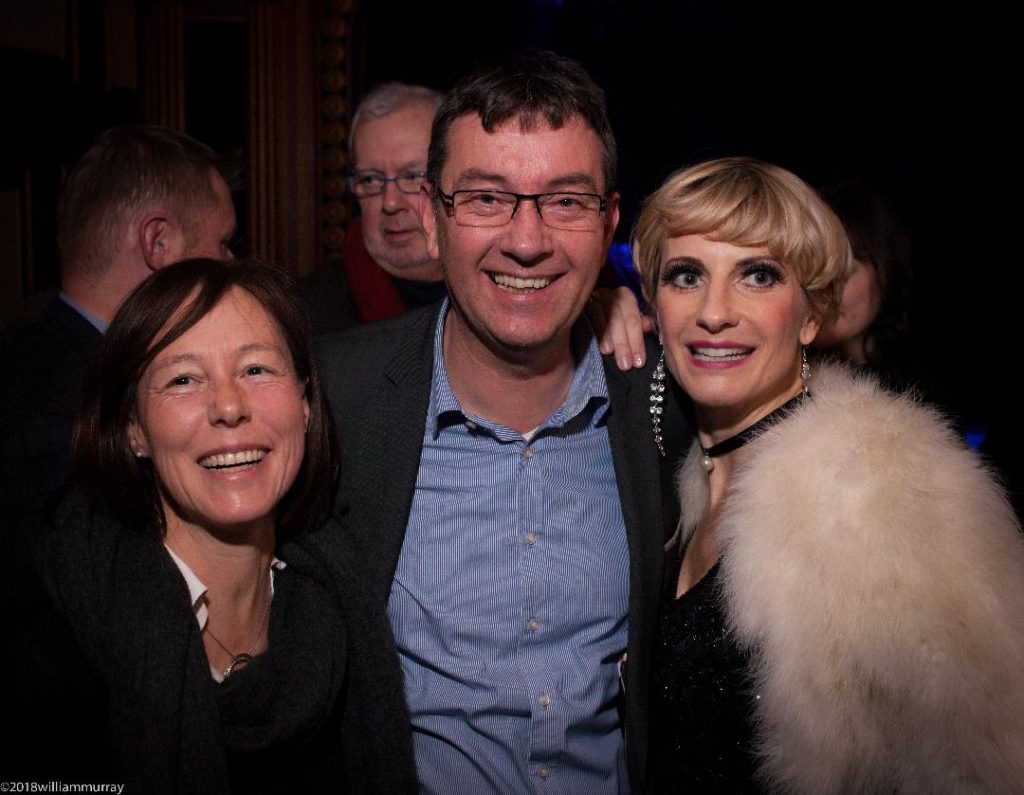By Myra Chanin
Adrienne Haan is a powerful actress and powerhouse cabaret performer who specializes in the music of the 1920’s and 1930’s. Her material runs the gamut from Berlin to Berlin, i.e., from the cynicism of the Weimar Republic to the eternally grateful Irving, a 5-year-old uneducated immigrant who “was American Music,” according to Jerome Kern, the leading songwriter of the time.
Berlin and Haan are a great combination. Both are honest and honorable and say exactly what they mean. Haan is a personable and personal entertainer, attractive, comfortable and commanding on stage and endearing when she strolls down to interact warmly with the audience and introduce luminaries who have come to watch her perform.
A stranger here herself with a slight but seductive European accent, she holds dual citizenship from Germany and Luxembourg. Trained at The Cologne School of Music and Dance, The American Academy of Dramatic Arts and The Julliard School, she was obviously an A student at all of the above. Her resume is impressive. She’s performed with Symphony Orchestras from Jerusalem to New York, as well as with our own Roaring Twenties mavens, Vince Giordano and the Nighthawks.
Haan presents herself as a blonde in a Roaring 20-ish fitted, mid-thigh, beaded black frock, a white fur shrug and dangling diamond earrings. Her 22-song program is hardly run of the mill.
She opens with one of Berlin’s cleverest songs, “There’s No Business Like Show Business” whose crafty and astute rhymes always amaze me having been written by someone who arrived in the US unable to speak a word of any language but Yiddish and became able to create phrases like “the roustabouts that move the show at dawn,” or images and conceits like “the sawdust and the horses and the smell, the towel you’ve taken from the last hotel.”
Berlin’s first International hit, “Alexander’s Ragtime Band”follows. Composed in 1911 when he was 23 years old, the lyrics grab my attention for his use of the word meander as a rhyme for Alexander. Wow! I was born here and I didn’t know what meander meant till I was in high school studying geology. But Haan goes back to Berlin’s Yiddish beginnings when the musical common denominator in every other Jewish household in Belarus was a Yiddish folksong in a minor key, which described a home’s seductive warmth before moving on to the image of a Rabbi teaching little children the Hebrew alphabet, an indication of how important literacy has been to the Jewish people. Judaism is the only religion that uses a literacy test as a puberty rite.
If there is one constant to Berlin’s music it’s his eternal gratitude to America for giving him and others like him a welcoming home and allowing them to become what they became. In 1949, in a Broadway musical entitled Miss Liberty, he expresses his gratitude by setting the Emma Goldman’s immortal poem inscribed on that statue to music.
Berlin’s first published song in 1907 when he was 19, “Marie from Sunny Italy,” makes its appearance also. It’s not one of my favorites. The ordinary tune with corny even banal lyrics and infantile rhymes: “Love me, too, Forever more I will be true, Just say the word and I will marry you.” They remind me of The Beatles “Love, love me do. The way I love you, I’ll always be true.” Yuch!!! Who would ever believe that the composer of Marie would eventually write lines as eternally sophisticated as, “Before the fiddlers have fled, Before they ask us to pay the bill and while we still have the chance, Let’s face the music and dance.” It’s as likely as the Beatles ever writing “Norwegian Wood.”
Historical aspects of the program tickled me. A pro-Income Tax propaganda ditty written in 1942 at the request of FDR and still owned by the IRS: “I Paid My Income Tax Today,” and the 1918 WWI complaint, “Oh, How I Hate to Get Up in the Morning” followed by the similar “This is the Army,” in 1942.
“The Hostess with the Mostess on the Ball,” about a Perle Mesta type ambassador to Lichtenberg (ne Luxembourg) holds hometown appeal for Hahn. Her Hollywood/Broadway Medley includes the very straightforward “Blue Skies,” the continental dance rhythms of “Cheek to Cheek,” and two Annie Oakley numbers from Annie Get Your Gun.
Haan ends the show with three of Berlin’s most unforgettable and tender ballads: “Always,” which he presented to his wife on their wedding Day, “White Christmas,” the world’s best-selling Christmas song and “God Bless America,” the unofficial American Anthem first sung by Kate Smith on the radio in 1938 when its opening line: “While the storm clouds gather far across the sea,” could not have been more prescient.
Berlin’s memorable melodies are a perfect fit for Haan. Her voice is as powerful as Merman’s, Berlin’s favorite singer, but far less coarse. And Haan has help. Her music director, Richard Danley, at the piano, supplies her with lush and toe tapping charts and adds his full baritone to her strong soprano in duets. I loved her presentation and her singing and her friendliness but I thought the script could have been more orderly. I wasn’t always sure what the point of some song being in it was.
But a big surprise still awaited. In the audience were two Irving and Mary Ellen Berlin’s descendants: their grandson Edward Emmett, and Edward’s daughter, Berlin’s great-granddaughter, Louisa, who were both totally enthralled by Adrienne’s performance. How do I know? I could see they were having a great time whenever I surreptitiously glanced over at them. And they hung around, greeting Zaida’s fans and posing for selfies. Abi Gezunt!
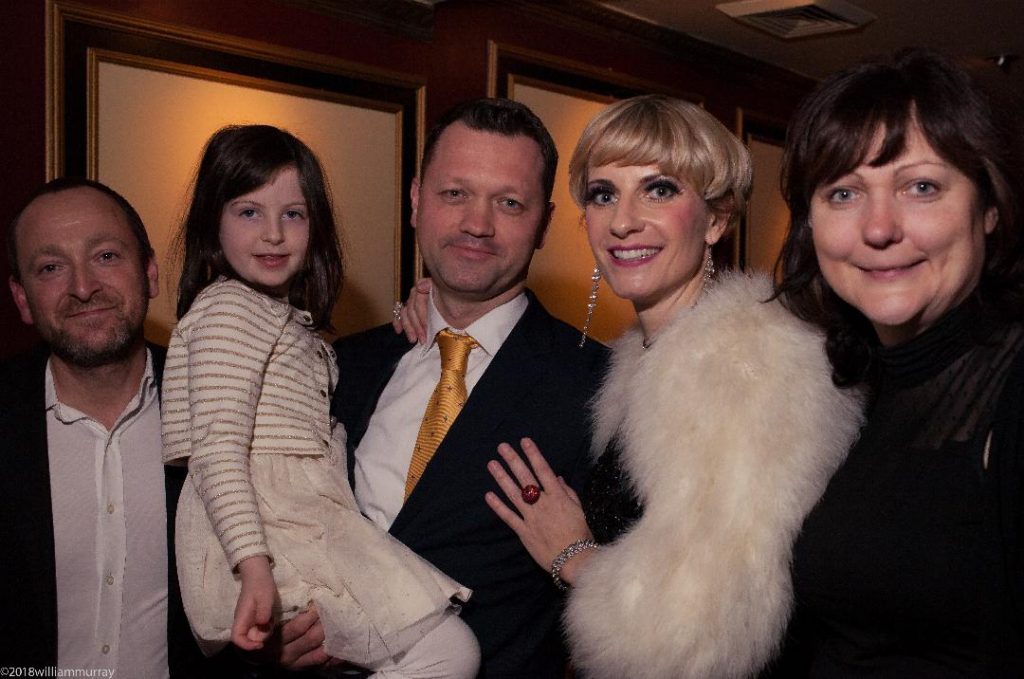

Edward Emmet, grandson of Irving Berlin with his daughter Louisa, great-grand daughter of Irving Berlin being held by His Excellency the Consul General of Belarus, Viktar Charakhovich, Adrienne Haan and Charakhovich’s wife Elvira
Photos: William Murray
This performance will be encored Monday night at 7 pm The Triad Theater, 158 W. 72nd St. NYC


